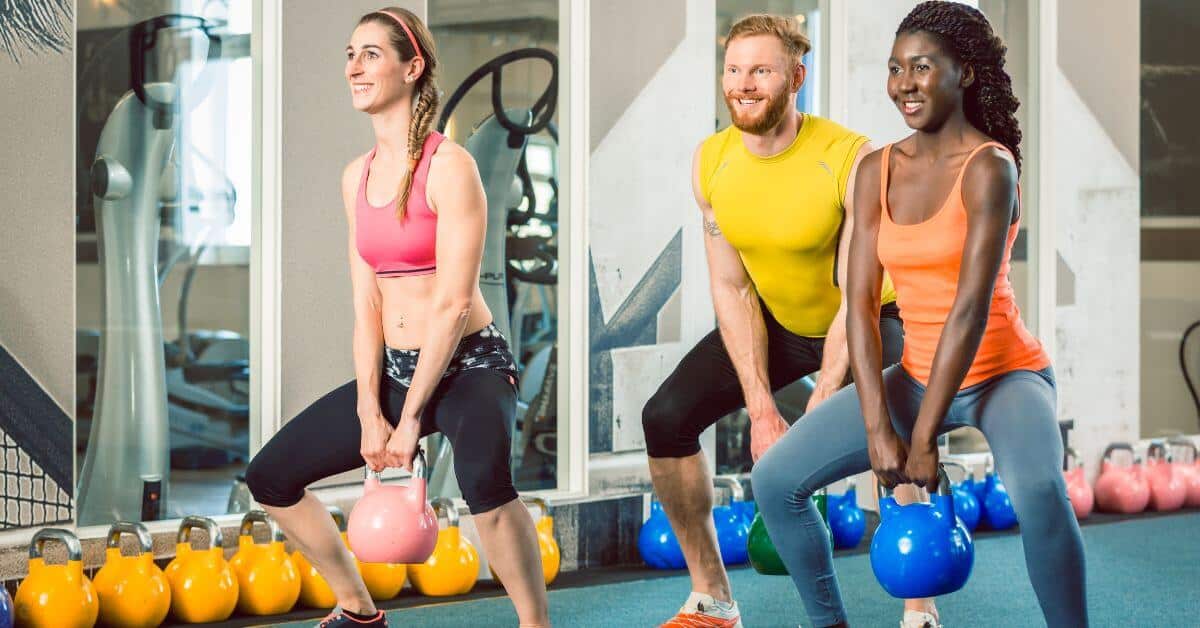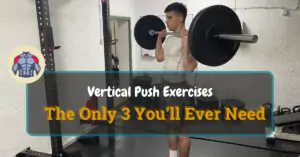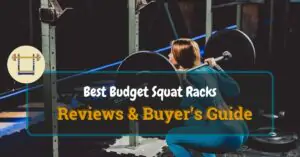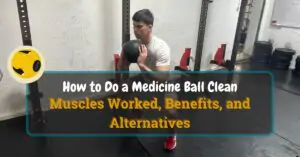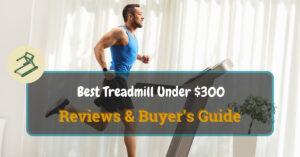Basic functional training exercises are types of functional movement that use large groups of muscles working together across your body.
Table of Contents
ToggleThe motions used in these functional exercises frequently mimic those used in everyday life.
Functional movements might help you enhance your performance in scenarios like carrying groceries, getting out of bed, or picking up heavy objects.
Depending on your objectives, the activities you engage in, and other factors, everyone will experience various benefits and drawbacks from functional fitness exercises.
Joint mobility comes first in functional training over aesthetics.
Start Building Your Dream Body Today
Ready to elevate your fitness game without falling into the trap of dull, repetitive routines that just don’t deliver? Imagine sculpting your ideal physique and boosting your health, all while still enjoying life’s pleasures, like those irresistible weekend getaways and your aunt’s legendary cheesecake. With our online fitness and nutrition coaching service, you don’t have to compromise. Dive into a personalized fitness journey that blends perfectly with your lifestyle, not against it. Book your completely free discovery consultation today, and take the first step towards a transformation that doesn’t require giving up the joys of life.

“I was skeptical about online fitness coaching, but Functional Body Savage completely changed my perspective. Vanja and Radomir’s personalized approach and attention to detail have helped me achieve goals I never thought possible. I’m stronger, more confident, and grateful for their guidance.”
Emily Thompson, San Francisco, CA
Learn More About Our Online Coaching ServiceBasic Functional Training Exercises
20 Basic Functional Exercises and Functional Movements for All Levels
Here is the list of 20 functional fitness exercises you should include in your workout routine.
Consult with your personal trainer before implementing these compound exercises into your current functional fitness workout.
1. Squats
Squat is a fundamental movement pattern that combines numerous joints and muscles and enhances your hip mobility.
Multiple upper and lower body muscles should cooperate during squats.
Many of these muscles help you while you perform daily activities, including walking, bending, or carrying heavy objects.
Squatting without understanding the correct form, however, can cause injury.
To master squat form and technique, it is essential to have a checklist and guidelines to follow while doing squats to maximize performance and minimize the possibility of injury.
2. Lunges
Lunges (forward lunge and reverse lunge) typically target the muscles in your lower body, but when done correctly, they should train your core and, if done with good posture, even strengthen your back and shoulders.
Your hamstrings, hips, glutes, and core are heavily worked when you perform lunges.
Your quads and calf muscles are also worked.
3. Push-Ups
Push-up is a quick and efficient bodyweight exercise that can improve your upper body and core strength.
Your triceps, shoulders, shoulder blades, and chest pectoral muscles are stimulated during this exercise.
There are numerous techniques to perform push-ups (regular/decline/incline push-ups).
Newcomers can start with more straightforward variations, while more experienced exercisers could pick a more demanding one.
4. Single-Leg Deadlifts
Single-leg deadlift, such as the single-leg Romanian deadlift, is a hip-hinge exercise that develops the hamstrings, gluteus maximus, gluteus medius, ankles, and core.
One leg lifts off the ground and extends behind you when performing this version of the standard deadlift.
The more complicated movement engages even more core muscles and the standing leg, which enhances balance.
5. Deadlifts
Deadlift exercises can help you strengthen and define your hamstrings, glutes, and upper and lower back.
In a deadlift, you lower yourself to the floor and raise a heavy barbell or kettlebell off the ground by hinging your hips backward.
6. Pull-Ups
Pull-up is a great bodyweight functional exercise that is excellent for increasing upper-body strength.
However, it is usually viewed as a complicated exercise that can be challenging for beginners.
You should avoid shrugging your shoulders when making the action and instead concentrate on using your arms and shoulder muscles.
7. Bent-Over Rows
Bent over row is a common movement in most muscle-building workouts.
The upper back muscles can be developed and strengthened by a bent-over row.
But to do a bent-over row correctly, you need support from your core, low back, and arms muscles.
8. Bodyweight Squats
Bodyweight squat is a lower-body workout that you can do practically anywhere without special equipment or much room.
It’s a practical routine that works all the essential muscles in the legs.
To develop powerful glutes or avoid being hurt, you must learn how to do the bodyweight squat.
9. Overhead Presses
Overhead press is an upper body exercise where you push a barbell above your head while standing straight.
The pectorals (chest), deltoids (shoulders), triceps (arms), and trapezius (back) are the major muscle groups involved in the overhead press.
The shoulders and triceps are primarily strengthened during the overhead press.
Overhead press belongs to the traditional strength training exercises also widely used in functional training.
10. Kettlebell Swings
Kettlebell swings, built on the deadlift movement pattern, work almost all of the body’s muscles, especially those in the posterior chain, resulting in a more muscular back and hips.
Kettlebell swing would be a great option if you can only fit in one kettlebell workout.
They are excellent if you only have one piece of functional training equipment and want to perform a full-body workout.
11. Glute Bridges
Glute bridge is a physical exercise that can help you tone the gluteus muscles and hamstrings.
Laying on your back with your feet adequately planted on the ground, raise your pelvis to perform glute bridges. It can enhance lower back health and hip flexibility.
12. Inverted Rows
Inverted row is another name for bodyweight rows.
Imagine yourself in a push-up position, then roll over to better understand this move.
Your arms stay extended, and you grab the bar above you instead of placing your hand on the ground.
You will primarily target the back and shoulder muscles when completing this motion.
13. Planks
Plank is an effective bodyweight exercise that can be performed anywhere and requires no equipment. T
he muscles that connect your upper and lower extremities, known as your core and your shoulders, arms, and glutes, gain the most strength when you hold your body straight as a board.
A strong core can decrease joint tension and help you acquire better posture.
14. Romanian Deadlifts
Romanian deadlift is a popular barbell exercise for developing the glutes, hamstrings, and lower back muscles in your posterior chain.
Although dumbbells and kettlebells are common substitutes, it is typically done with a barbell.
Romanian deadlift is a compound exercise that simultaneously stimulates several muscle groups, making it a time-effective complement to your training plans.
15. Goblet Squats
Goblet squat is an exercise where you hold the weight in front of your chest with both hands.
Your elbows will stay in line with your knees as you squat down, and your weight will do the same.
Although everyone can use it to increase their strength, it is the best squat variant to teach beginners appropriate squat techniques.
16. Side Lunges
Side lunges, referred to as lateral lunges, are a form of bodyweight exercise.
The quadriceps, abductors, glutes, adductors, and hamstrings are just a few lower body muscles that the side lunges target.
This assists in creating symmetry on both legs, developing your stabilizing muscles, and enhancing your balance.
17. Box Step Ups
Box step-up is a powerful unilateral exercise that strengthens the quadriceps, calves, glutes, and hamstring while enhancing balance, coordination, and symmetry.
It also improves the stability of the ankle, knee, and hip joints.
Always concentrate on alignment and put the movement’s effectiveness before the load when performing box step-ups.
18. Pistol Squats
Pistol squat is a squat performed on one leg. The strength of your core, stabilizing muscles, and ankle glutes to the legs are tested during pistol squats.
You are in good company if you cannot do even one rep of this one-legged workout. It requires serious strength, mobility, and control.
19. Mountain Climbers
Mountain climber is a bodyweight exercise that activates muscles throughout your body.
Although the movement appears easy, mountain climber workout nearly uses your complete body and increases your heart rate.
The fundamental exercise is excellent for beginners, but more experienced exercisers can modify it a bit.
20. Overhead Squats
Barbell overhead squat is just a squat done while holding a barbell overhead.
When executed correctly, it can improve your flexibility, mobility, and strength, which you can use in other workouts and everyday life.
The overhead squat works your upper body muscles, including your triceps and deltoids, adductors, hamstrings, quadriceps, and lower back.
“A beginner functional training workout will make you better at exercise so you eventually can program in more complex and powerful movements. That’s when the exponential improvements begin.” – Adam Sinicki, AKA The Bioneer, author of the Functional Fitness and Beyond
Related Articles:
FAQs
What Are the 8 Basic Training Exercises?
Eight basic training exercises are squat, pull up, bridge, side plank, elbow plank, walking lunge, abdominal crunch, and reverse dip. These bodyweight exercises will help you reach your fitness objectives in the convenience of your own home.
What Are the 6 Basic Lifts?
Six basic lifts are squat, hip hinge, vertical press, vertical pull, horizontal press, and horizontal pull. Every complete workout program includes these movement patterns.
What Are the 5 Basic Movement Patterns?
Five basic movement patterns are bending, squatting, rotational, pushing, and pulling. Functional training can help you prevent injuries, improve your form, define your muscles more, and improve your neuromuscular strength.
How to Start With Basic Functional Training Exercises?
Starting with basic functional training is now more accessible than ever before.
You can use a few of these 20 exercises to begin your training. Implementing some of these exercises may improve your functional strength overall.
You may achieve your ideal physique with only a tiny amount of equipment, a workout area, and some consistency.
Let us know what you think of these exercises and which one is your favorite and why in the comments section.
Start Building Your Dream Body Today
Ready to elevate your fitness game without falling into the trap of dull, repetitive routines that just don’t deliver? Imagine sculpting your ideal physique and boosting your health, all while still enjoying life’s pleasures, like those irresistible weekend getaways and your aunt’s legendary cheesecake. With our online fitness and nutrition coaching service, you don’t have to compromise. Dive into a personalized fitness journey that blends perfectly with your lifestyle, not against it. Book your completely free discovery consultation today, and take the first step towards a transformation that doesn’t require giving up the joys of life.

“I was skeptical about online fitness coaching, but Functional Body Savage completely changed my perspective. Vanja and Radomir’s personalized approach and attention to detail have helped me achieve goals I never thought possible. I’m stronger, more confident, and grateful for their guidance.”
Emily Thompson, San Francisco, CA
Learn More About Our Online Coaching Service
